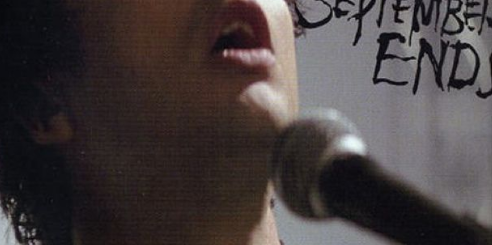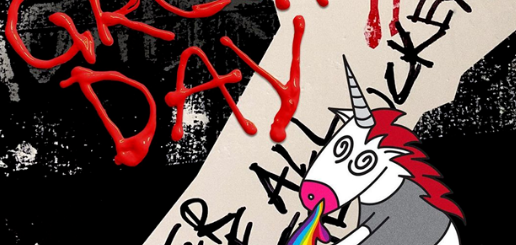Song of the Century by Green Day Lyrics Meaning – An Ode to Our Turbulent Times and Lingering Hopes
Lyrics
That’s louder than bombs
And eternity
The era of static and contraband
That’s leading us into the promised land
Tell us a story that’s by candlelight
Waging a war and losing the fight
They’re playing the song of the century
Of panic and promise and prosperity
Tell me a story into that goodnight
Sing us a song for me
Green Day’s ‘Song of the Century’ may seem like a subtle prelude to an album that roars with punk rock vigour, but within its gentle lines lies the weight of generations. This sonic capsule, seemingly anachronistic in its serenity, serves as a bookend to an era marked by both turmoil and transformation.
The track isn’t merely a set of melodies; it’s a beacon illuminating the socio-political landscape of our ever-evolving society. Wrapped in simplicity, ‘Song of the Century’ discovers complexity in brevity, inviting listeners to discern the depth beyond its calm surface.
The Echo of Static: Reviving a Bygone Era
‘The era of static and contraband’ isn’t just a line—it’s a call back to an age where media manipulation and censorship shaped society. Green Day nudges us to recall times when the airwaves were permeated with propaganda, and contraband culture undercut sanctioned narratives. Nostalgia and criticism interlace, as ‘Song of the Century’ resurrects the ghosts of information wars long past.
Yet, this static isn’t altogether obsolete. It’s a metaphor for our contemporary disarray. As the digital age continues to forge its path, we witness an ever-present noise, disrupting communication and understanding in our modern promised land.
Waging War with Whispers Instead of Shouts
‘Waging a war and losing the fight’ encapsulates the helplessness rampant in our efforts to achieve social and political ends. But the song subverts the typical aggressive, raucous punk aura. The struggle here is quiet, intimate—more a candlelit vigil than a battlefield roar. Green Day crafts a paradox where the most profound battles are not always the loudest.
This subtle warfare mirrors our internal conflicts amid external chaos, suggesting that sometimes the front lines are within our own hearts and communities, hidden from the blaring headlines.
The Subtle Symphony of Contradictions
‘Panic and promise and prosperity’—these words dance within the lyrics like shadows flickering against the wall. The trio of concepts seem to war with each other, yet in Green Day’s hands, they create a harmonious dissonance. Panic in the face of political upheaval, promise in the hopes of change, and prosperity as the elusive dream.
The band’s lyrical prowess lies in juxtaposing these themes against the gentle strumming of a singular, undefined tune. It’s not the sound of the century we’d predict from punk rock’s rebels, but one extracted from the quiet moments beneath the riot.
Whispering the Secrets: The Hidden Meeting Beneath ‘Goodnight’
‘Tell me a story into that goodnight’ can’t help but evoke Dylan Thomas’s famous plea against the dying of the light. Yet, Green Day inverts this plea, transforming it into a serenade both to slumber and to awakening. The ‘goodnight’ is not conclusive but rather an invitation into a deeper, almost literary exploration.
The cryptic nature of this sign-off leaves listeners lingering on the implicit ‘what next.’ The story that leads into goodnight primes us for dreaming, for envisioning what lies beyond our current century.
Memorable Lines That Define a Generation
Within the sparse lyrics of ‘Song of the Century,’ certain lines stand as sentinels of sentiment for an era still unfolding. ‘Louder than bombs and eternity’—a line that, paradoxically, is whispered in the song—embodies a spirit of defiance and endurance that is the very fabric of generational anthems.
‘Sing us a song for me’—the final plea, tender yet potent, encapsulates the collective yearning for a narrative that resonates with individual and collective journeys. It’s a call to the troubadours and storytellers of our age: chronicle the present with an eye to posterity.








